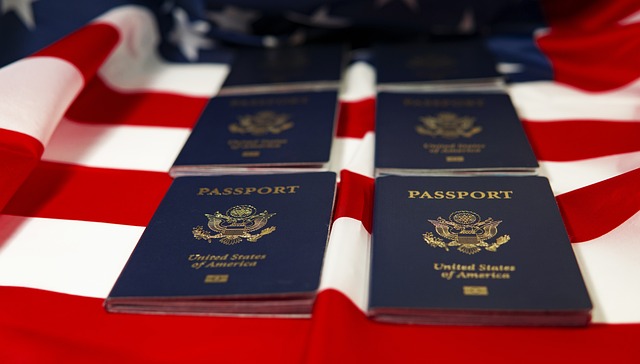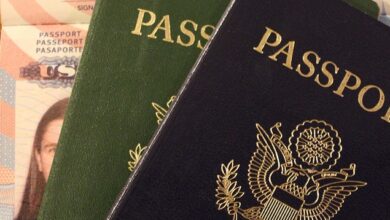Common Reasons for Visa Rejection and How to Appeal

When applying for a visa, whether it’s for family reunification, work, study, or tourism, rejection can be disheartening. However, understanding the common reasons behind visa denials and knowing how to appeal can help you address issues effectively and improve your chances of success in the future. Below is a detailed guide on why visas are often rejected and what steps you can take to appeal the decision.
1. Common Reasons for Visa Rejection
A. Incomplete or Incorrect Documentation
One of the most frequent reasons for visa rejection is missing or incorrect documentation. Immigration authorities have strict requirements, and any omission or error can lead to denial. Common examples include:
- Failing to submit all required forms or documents.
- Providing outdated or invalid documents (e.g., expired passports).
- Inaccurate information on application forms.
Solution: Double-check the checklist provided by the embassy or consulate before submitting your application. Ensure that all documents are up-to-date, legible, and properly translated if necessary.
B. Financial Instability
Visa applicants must demonstrate their ability to support themselves during their stay without relying on public funds. If the immigration authorities believe you lack sufficient financial resources, they may reject your application.
Solution: Provide clear evidence of financial stability, such as bank statements, employment contracts, or sponsorship letters from someone who can guarantee your expenses.
C. Insufficient Ties to Home Country
For temporary visas like tourist or business visas, officials want assurance that you will return to your home country after your visit. Weak ties to your home country—such as no job, family, or property—can raise concerns about potential overstaying.
Solution: Highlight strong connections to your home country, such as proof of employment, ownership of assets, or family obligations.
D. Previous Violations of Immigration Laws
If you have a history of violating immigration laws, such as overstaying a previous visa or entering a country illegally, this could result in rejection.
Solution: Be honest about past violations and provide explanations or mitigating circumstances if possible. Some countries offer waivers for certain offenses, so consult an immigration lawyer for advice.
E. Health Concerns
Certain medical conditions might make you ineligible for a visa, especially if they pose a public health risk or require extensive healthcare services.
Solution: Undergo mandatory medical examinations and ensure all health-related documentation is accurate and complete. Address any concerns raised by the authorities promptly.
F. Security or Background Issues
A criminal record or association with activities deemed threatening to national security can lead to visa refusal.
Solution: Disclose any criminal history upfront and provide context or rehabilitation efforts. Seek legal counsel to determine whether there are grounds for reconsideration.
G. Misrepresentation or Fraud
Providing false information or forging documents is a serious offense that almost always results in visa denial—and possibly a permanent ban.
Solution: Always be truthful and transparent in your application. If caught misrepresenting facts, avoid reapplying until the issue is resolved.
2. How to Appeal a Visa Rejection
If your visa application has been denied, don’t lose hope. Many countries allow applicants to appeal the decision under specific circumstances. Here’s how you can proceed:
A. Understand the Reason for Rejection
The first step is to carefully read the rejection letter sent by the embassy or consulate. It should clearly state the reason(s) for denial. Understanding the specific cause helps you tailor your appeal accordingly.
B. Check Eligibility for an Appeal
Not all visa denials can be appealed. Some decisions are final, while others may allow for reconsideration. Research the policies of the relevant country or consult an immigration expert to confirm your eligibility.
C. Gather Supporting Evidence
To strengthen your appeal, gather additional evidence addressing the reasons for rejection. For example:
- If financial instability was cited, provide updated bank statements or proof of increased income.
- If insufficient ties to your home country were mentioned, submit new evidence showing stronger connections.
- If documentation issues were the problem, correct and resubmit the missing or incorrect papers.
D. Write a Formal Appeal Letter
Your appeal letter should be concise, respectful, and focused on resolving the issues identified in the rejection notice. Include the following elements:
- Your full name, application reference number, and contact details.
- A brief summary of your original application and the reason for rejection.
- An explanation of how you’ve addressed the issues.
- Any supporting documents attached to the appeal.
Here’s a sample structure for your appeal letter:
Sample Appeal Letter:
[Your Name]
[Your Address]
[City, Postal Code]
[Email Address]
[Phone Number]
[Date]
[Embassy/Consulate Name]
[Address]
Dear Sir/Madam,
Re: Appeal Against Visa Rejection – Reference Number [Your Reference Number]
I am writing to formally appeal the recent decision to reject my visa application dated [Application Date]. After reviewing the rejection notice, I understand that the primary concern was [specific reason].
To address this issue, I have taken the following actions:
- [Explain corrective measures].
- [Provide additional evidence or documentation].
Enclosed with this letter, you will find the following updated documents:
- [List of documents].
I kindly request that my case be reconsidered based on the new information provided. Please do not hesitate to contact me at [your phone number] or [email address] if further clarification is needed.
Thank you for considering my appeal.
Sincerely,
[Your Name]
E. Submit the Appeal
Follow the instructions provided in the rejection letter or on the official website of the embassy/consulate to submit your appeal. Ensure all required fees are paid, and keep copies of all correspondence for your records.
F. Consult a Professional
If the process seems overwhelming or if your case involves complex legal issues, consider hiring an experienced immigration lawyer. They can guide you through the appeal process and increase your chances of success.
3. Tips for Avoiding Future Rejections
- Read Guidelines Carefully: Familiarize yourself with the visa requirements and adhere strictly to them.
- Plan Ahead: Allow plenty of time for preparation and submission to avoid last-minute mistakes.
- Seek Assistance: If unsure, consult professionals or use trusted resources to ensure accuracy.



